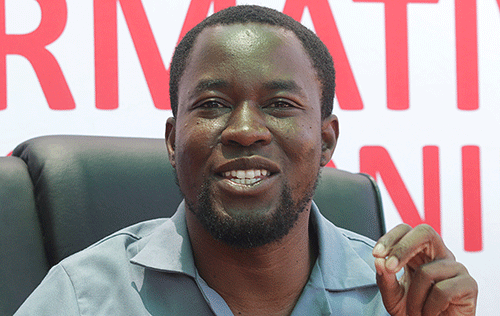Namibians across the country cast their votes in the general elections from 27 to 30 November, with partial results already being released.
However, the aftermath has been marred by dissatisfaction from several political parties, including the Affirmative Repositioning (AR), led by Job Amupanda.
At a media briefing yesterday, he expressed concern over the transparency and fairness of the election process.
He did not mince his words, stating that the elections were neither free nor fair, citing a series of issues which he believes compromised the integrity of the process.
The AR leader specifically criticised the Electoral Commission of Namibia (ECN) for failing to ensure adequate consultation, and not declaring Friday and Saturday, the days leading up to the continuation of the elections, as public holidays as per the law.
He argued that these days would have facilitated greater voter participation. “The election process was not consultative, and the lack of public holidays meant that many voters were unable to fully engage in the process,” Amupanda stated.
He expressed frustration over the ECN’s choice of certain polling station locations, particularly in areas which were ‘inaccessible’ to large segments of the population.
“It simply does not make sense for the ECN to choose locations deep in the north that are difficult to reach,” he pointed out.
He highlighted inconsistencies in the distribution of polling stations, citing the example of the Khomas region, which he claimed had only one polling station available on the extended days, creating long lines and delays.
He was also critical of the ECN’s decision to announce partial results while many voters were still in queues.
While some political parties have already announced their intentions to take legal action against the ECN, Amupanda confirmed that they were still weighing up their options.
“We have made a decision that the elections were not free and fair. And that is not how we operate; we take ourselves very seriously. We can disagree with you. When we disagree with you, it is because we have taken a decision. We can agree with you, but even in that agreement, we have taken an analysis, objective and subjective condition, and determination for us to go there,” he stated.
He acknowledged that the results, regardless of the issues, are now the “consequences” of a process which his party believes could have been managed better.
“There is no way we can go to a meeting, and at that meeting, that’s where we make a determination. How do you run a household like that?
That is why it is important for you to discuss, analyse and resolve before you meet outsiders. How do we then go and meet other political parties without making an inside decision, an objective and subjective assessment of the election?” he asked rhetorically.
He added that their priority is to understand and take a position.
“We don’t believe in unity for the sake of this. Remember, we do not call ourselves an opposition party. An opposition to what?” he asked.
While the ECN has acknowledged some shortcomings, the body has maintained that it has been transparent in its work, contrary to what critics say.



